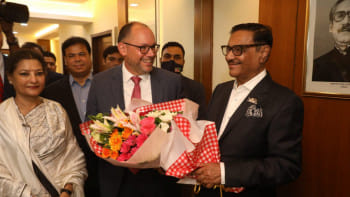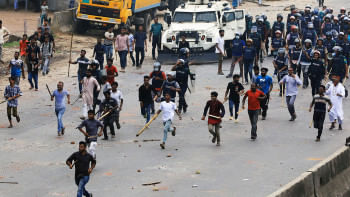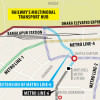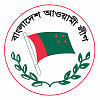Is it all as calm as it seems?

The government has just inaugurated the elevated expressway in Dhaka. A three-hour commute, that too on a good day, from one end of the capital to another will take about half an hour when the expressway is fully functional. But the part of the project that is currently open to the public has already reduced commute times by half. People are also reaping the benefits of the metro rail, also waiting to become fully functional. What better than the success of these megaprojects to showcase the ruling regime's achievements and contribution to the welfare of Dhaka's citizens and, consequently, to woo voters?
No doubt these are milestones and have added feathers to Bangladesh's development cap and to the cap of the ruling Awami League. A few more projects like the Padma Bridge Rail Link will be inaugurated soon, most likely as part of the ruling party's election campaign, to show its electorate that it is indeed delivering on its promises. Although there has been no over-electioneering yet, the ruling party appears to have factored the election into its business-as-usual attitude. But for all intents and purposes, Awami League can be said to be in election mode.
There is no denying that the typical election atmosphere is absent in the country. Usually, electioneering starts more than a year before the polls. But this time, even with the elections just four months away, there are hardly any campaigns. The absence of the usual hum surrounding elections is becoming more and more noticeable. Aspiring candidates generally warm up to their constituencies with leaflets, posters, and banners. They swarm the streets, shaking hands and hugging people. But this time, there is nothing of the sort – from any of the parties.
From the current situation, it seems that the government is fully planning to proceed with the election, no matter who joins in or doesn't. The Election Commission has already announced that the next polls could be held in the first week of January 2024. How many political parties will join the election is not yet clear. But one thing is certain: BNP will not be a part of it.
Instead, what we see is political parties keenly observing the situation from a distance, unsure about getting out on the streets. Although BNP appeared to be flexing its muscles for a while, pushing for its single demand of holding the election under a non-partisan interim administration, the party appears to have quietened down recently. It managed to gather momentum twice in its campaign to get the government to step down and allow a non-partisan regime to take charge – once last December and then in July this year. Both times were a result of weeks of events and rallies culminating in a large, impressive showdown. Both times, BNP lost its momentum due to lack of coordination and confidence. The opposition on the streets is still trying to resume its campaign and get the momentum going again, but to no avail as of yet.
For Awami League, August is the month of turning their grief into strength, in remembering how the party's founder and his family were assassinated nearly five decades ago. For BNP, it is a month of embarrassment because, on August 21, 2004, as investigation has proven, a BNP-backed group had attacked an Awami League rally with grenades in an apparent attempt on the life of Sheikh Hasina, who was the opposition leader back then.
After the spectacular failure of the sit-in demo at Dhaka's entry points on July 29, BNP paused in August. This gave the ruling party some breathing space. And, in that time, the filing of cases against the BNP leaders and activists gained speed. The BNP Secretary General Mirza Fakhrul Islam Alamgir was accused of vandalism in a case filed about 11 years ago. BNP leaders alleged that the government is trying to revive those cases only so that they can be sent to jail before the national election. If this happens, the party's ability to wage a successful campaign will seriously suffer.
As for the ruling regime, it seems to be confident about having tackled the situation for now, with the BNP quietened down and the diplomatic front seemingly calm. As clear as the US' position is on free and fair elections, India's stance is equally unclear. Recently, a team consisting of members from the ruling Awami League and Jatiya Party visited New Delhi upon an invitation. Although we don't know for certain, politics and elections must have been at the centre of their discussions. Various Indian media outlets have produced numerous reports and opinion pieces about the upcoming election in Bangladesh and India's stance on it, but most were based on unnamed sources.
From the current situation, it seems that the government is fully planning to proceed with the election, no matter who joins in or doesn't. The Election Commission has already announced that the next polls could be held in the first week of January 2024. How many political parties will join the election is not yet clear. But one thing is certain: BNP will not be a part of it. The party had boycotted the 2014 polls, hoping that would put into question the legitimacy of the election, and had followed this up with months of violence on the streets. But, as we all know, this only backfired. This time, BNP's strategy will certainly be different.
So far, however, it seems that everyone is merely observing. The BNP is possibly waiting to see how the Western powers, especially the US, react in the coming days. The EU Election Exploratory Mission recently visited Bangladesh and a US team will also drop in on us shortly. Perhaps BNP will want to gear up its campaign to coincide with that visit, as it had done in July.
And as for the people, they have no option but to wait and observe.
Mohammad Al-Masum Molla is chief reporter at The Daily Star.


 For all latest news, follow The Daily Star's Google News channel.
For all latest news, follow The Daily Star's Google News channel. 









Comments